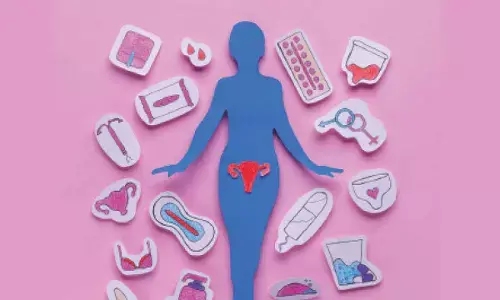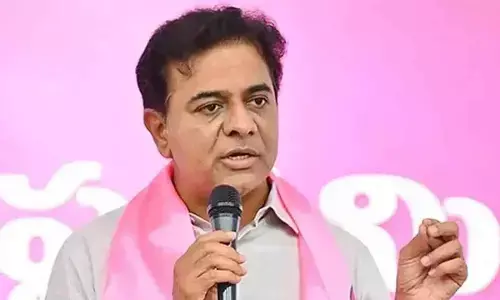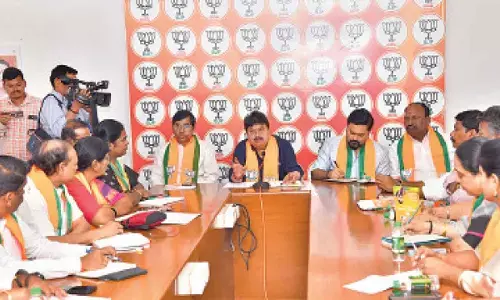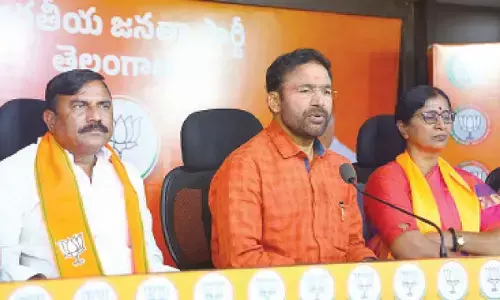Fine arts laced with technology to flourish in future
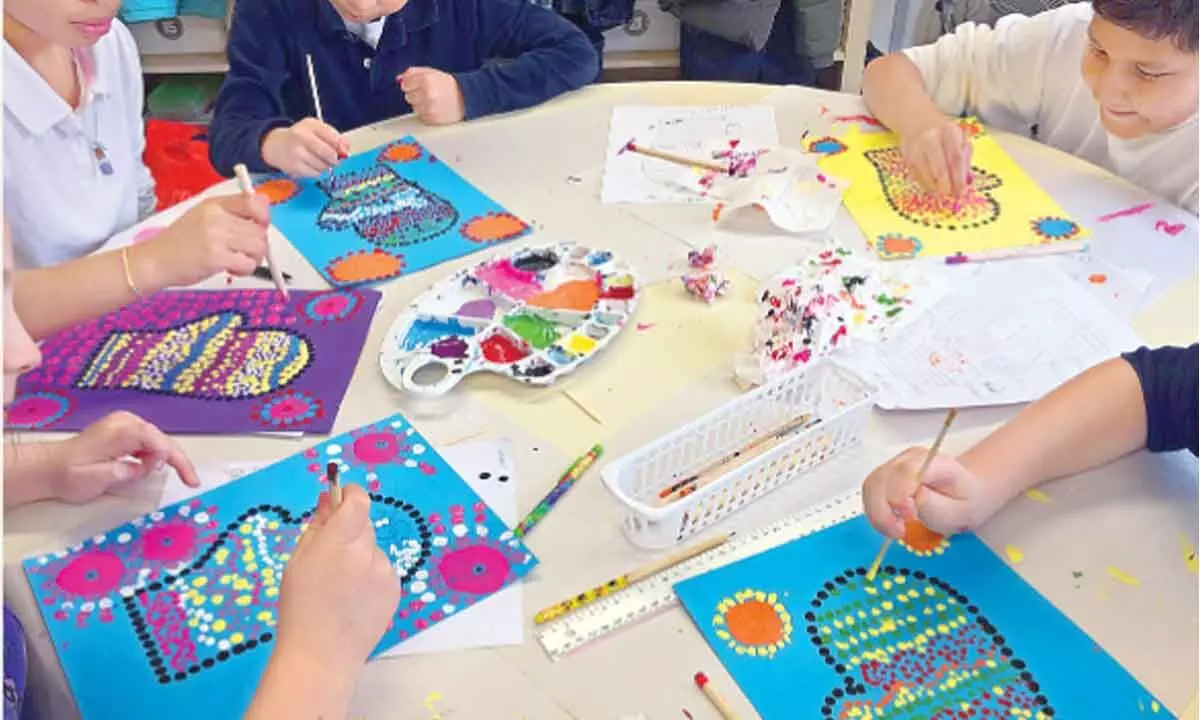
Fine art is something that is till now not recognised as a subject with much potential. Everybody is rushing towards engineering. But with time we can see a gradual decrease in the number of jobs from this field. However, with the advent of the digitisation process, Fine arts has opened up avenues for job creation.
Kavitha Daryani Rao, A vice-chancellor professor of Fine Arts in Jawaharlal Nehru Architecture and Fine Arts University, spoke with The Hans India about the doubts related to fine arts and its future prospects in this policy. She also explained the holistic approach that this policy envisages.
Discussing the role of fine arts for future job prospects she said that fine art is something that is till now not recognised as a subject with much potential. Everybody is rushing towards engineering. But with time we can see a gradual decrease in the number of jobs from this field. However, with the advent of the digitisation process, Fine arts has opened up avenues for job creation.
For instance we have animation, which is not restricted to entertainment only. Now it is also used in other industries like media, advertisements. Obviously the future is there for fine arts, maybe not in the traditional way like painting which people use to express their ideas and concepts but in the digital platforms it has a future. The pattern of employment may shift like some may get to work with big corporates while some will have to work on a small entrepreneurial basis.
The policy is more student oriented which Kavitha explained that the students have been made as the centre in the NEP. Traditional teaching process was, the teacher writes on black board with chalk and students sit passively and depending on each individual students' ability they grasped the concepts. This policy focuses on students and teachers' active interaction.
Communicating with the students, making them familiar with concepts and their applications in daily life will be beneficial for students. From being passive in classes they will be now more active. The students will become the centre of the learning process by getting engaged in an active way.
Speaking about Holistic skills have been given a fair amount of impetus in NEP. She said that, "Holistic development is one of the key concepts of the NEP. It focuses on the all-round personality development of the student. A student should learn to think out of the box, communicate, manage a team and tackle situations which will overall develop his or her soft skills.
The students should not be restricted to only one concept or particular domain. Pushing one type of concept and giving an exam on that pattern is not honing up the soft skills. Now the assessment methods along with the way of teaching are also going to change in order to brace students for other skills also. CBCS (Choice Based Credit Structure) has introduced many of these skills and many colleges have also gone for NAAC further ensuring that students are learning a lot more apart from their syllabus. Speaking about the national research foundation and its role in NEP, she said that till now our emphasis is only on marks rather than merit. People are not thinking out of the box in general. Now our focus is on innovation. Till now we are relying more on the traditional ways. Slowly research and development is coming. We have till now understood that Research journals are having layers of dust on them. But this is not the scenario now as thinking out of the box and catering to new and innovative ideas for betterment of the human race will be done by a research foundation.
Skill development laced with technology advancement will create more job creations. Elaborating it she said This being a broad spectrum nothing with surety can be said as which sector will be highlighted in today's era is uncertain as too much mechanisation is happening. That is why we are now emphasising on life-long learning. Suppose today you have a skill set and are working in a sector with those frozen sets of skills, after ten years that industry becomes redundant then you are unable to cope up with a new job because it requires an entirely different set of skills. Speaking about the integration of regional languages she said that we as humans have immense capacity to learn language. India being a culturally rich country has many languages and it would be a pity if we left them. The human brain has a capacity to pick up five languages at an early age. But on the other hand, there is a contradiction that higher education can't be imparted in regional languages.








